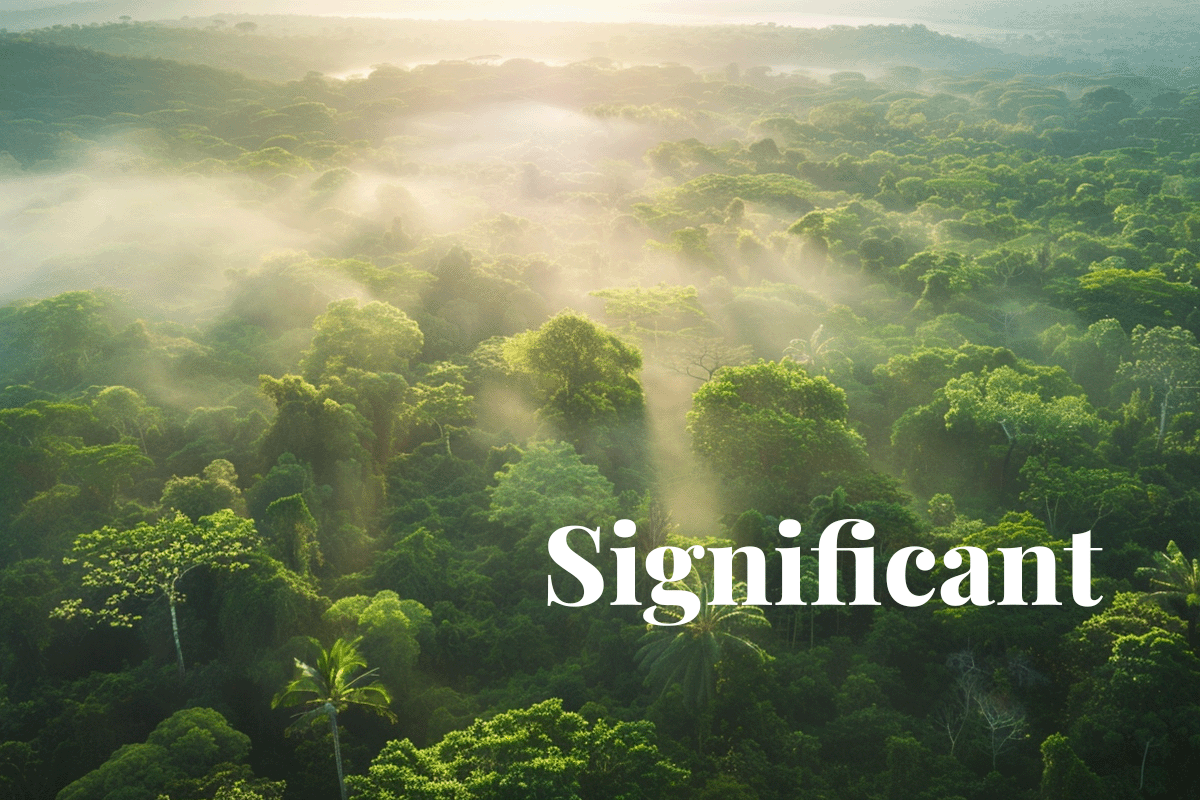Rio Tinto, the global mining powerhouse, announced its plan to significantly increase its retirement of carbon credits (carbon units) to 3.5 million annually by 2030. This ambitious initiative aims to offset about 10% of the company's baseline emissions, as revealed in its latest climate report. The London and Melbourne-listed mining behemoth is intensifying its efforts in the voluntary (verified) carbon market (VCM) to reach its environmental objectives for 2030. This comes after it admitted to falling short of its 2025 decarbonisation targets without using offsets.
 Aerial view of a morning mist in a forest in Guinea. AI generated picture.
Aerial view of a morning mist in a forest in Guinea. AI generated picture.
Rio Tinto is gearing up to finalise crucial feasibility studies in Guinea and South Africa, alongside escalating activities in key regions. These include the implementation of nature-based solutions (NBS) pilots and studies, marking a significant step forward in its environmental commitments. Furthermore, the company has pledged to unveil details about its commercial partnerships in the VCM and its strategy for sourcing carbon credits, emphasising integrity, due diligence, and purchase volumes.
Read more: Rio Tinto: investing in biodiversity conservation through biodiversity offsetting
With its considerable operations spanning coal, iron ore, and aluminium production, Rio Tinto's supply chain emissions stand at 578 million tonnes of CO2 equivalent, accounting for roughly 1% of global emissions. Despite a slight reduction in direct operational emissions in 2023, the company is on a mission to cut Scope 1 and 2 emissions by 15% by 2025 and 50% by 2030.
Read more: Tesla's record-high sales of carbon credits fuel financial growth
In addition to ramping up carbon credit retirements, Rio Tinto is exploring technological innovations to address its hard-to-abate emissions. The company's strategy includes a significant focus on Australian Carbon Credit Units (ACCUs) and third-party offset credits, aiming to dedicate over 500,000 hectares to NBS programmes globally by 2025. With a revised budget, Rio Tinto now estimates that $5 to $6 billion will suffice to meet its 2030 emissions reduction targets, down from the previously projected $7.5 billion. This year, the company is set to invest approximately $750 million in decarbonisation efforts, showcasing its commitment to a sustainable future.
Join our free webinar this Thursday: Understanding Carbon Footprinting for Beginners
DGB Group is your ideal partner in achieving sustainability and decarbonisation goals. We offer certified, premium carbon units that enable industries and individuals alike to compensate for their carbon emissions, fostering a cleaner, more sustainable world. We assist companies across various sectors to develop an impactful CO2 strategy that aligns with their environmental objectives. DGB provides the perfect opportunity for organisations and individuals to reduce their environmental footprint, restore nature, and create a healthier tomorrow.
Discover DGB’s carbon units



